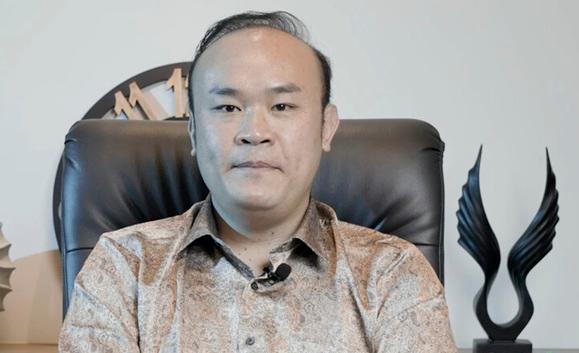PETALING JAYA: Malaysia-based EcoNiLi Battery New Energy Sdn Bhd, the largest lithium-ion battery recycler in Asean, is investing RM80 million in a third facility focused on remanufacturing and repurposing batteries.
CEO Datuk Jayden Goh said it is ramping up expansion plans this year amid growing electric vehicle (EV) adoption in Malaysia.
“We are seeing an increase in the number of EVs on Malaysian roads, and the government is actively pushing for greater adoption. As a result, we will soon have a large volume of batteries waiting to be recycled,” he told SunBiz in an exclusive interview.
Furthermore, Goh said,battery recycling demand is expected to surge in five to seven years as lithium-ion batteries from EVs and production scrap accumulate.
“Currently, there are three battery makers in Malaysia operating near full capacity, and we expect even more lithium-ion batteries to enter the recycling pipeline soon. The future looks bright, it’s just a matter of time,” he added.
As part of its expansion, Goh said, EcoNiLi is developing a “circular economy valley” to recover precious metals from used batteries.
“Malaysia lacks local mineral resources, so we must source them through secondary applications. In the future, having a large supply of these materials will support our goal of establishing domestic battery production.”
Despite short-term challenges, including a slowdown in EV demand and fluctuating battery metal prices, Goh remains optimistic about long-term growth particularly in battery recycling volumes.
“At the moment, battery value and metal prices are unstable due to the drop in global EV demand, which indirectly affects battery material prices. The entire battery ecosystem has faced challenges over the past two years, and this year will be no different. But as an entrepreneur, you have to stay optimistic and keep scaling the business,” he said.
Goh said the company has already broken even in terms of profitability, so scaling up is a priority. “We are currently in the process of completing our Series A fundraise and will continue to seek funding from both local and international investors.”
Ain addition to that, he said EcoNiLi plans to list on Nasdaq within three years to attract global investors and talent.
“We will raise more funding in the capital market. Whether it’s for overseas or Malaysia. To scale our next project because we have a few expansion plan. We have our upcoming phase two, which we are already securing land from Perak itself. 43-acre industrial land.”
Goh said Econili is targeting at least 20% profit growth this year, but with a successful fundraising, the company could even achieve 30% to 40% growth. Scaling a business of this size requires significant working capital.”
EcoNiLi serves global clients such as LG, Tesla and Honda, as well as battery recyclers worldwide that lack refinery capabilities.
“Setting up a refinery is highly complex, requiring significant expertise and investment. We source recycling materials from global battery collection companies and battery recyclers to process them further,” Goh said.
However, he highlighted that Malaysia lags behind China, India, and South Korea in battery recycling policies.
“Malaysia is still in its early stages, with unclear policies, ongoing R&D, and trial-and-error efforts.”
He said EcoNiLi is willing to work alongside the government to advocate for clear policies that support the industry’s growth.
“This is a new industry with no clear guidelines or regulatory framework. We are adapting to the evolving landscape while positioning ourselves as a key player in the sector. Over time, this will allow us to influence industry standards.”
Goh believes Malaysia still has time to become a major industry player, leveraging its cost advantages over countries such as South Korea, Singapore and Japan.
“Our costs are significantly lower than those in developed countries. Capital expenditure (capex) is also lower, making us a cost-effective alternative.”
Comparing Malaysia to India, Goh noted that the Indian government has introduced incentives and a policy framework that have accelerated industry growth. “Today, India has over 50 companies in battery recycling and related industries. They recognised its importance early on and acted swiftly.”
Goh pointed out that China’s battery recycling sector has also grown exponentially.
“In 2014, China had 500 battery recycling companies. Today, there are 120,000, with over 200 listed companies. This shows the industry’s rapid growth potential.”
“Korea already has four listed battery recycling companies. If we work closely with the government, we can fast-track our own listing and expand much faster,“ he added.
Goh stressed that battery recycling is a crucial industry, and discarded batteries should never end up in landfills.
“People now understand the value of used batteries. The battery ecosystem can generate national benefits, creating jobs, attracting investment, and positioning Malaysia as a global supplier of recycled materials.”
He pointed out that recycled battery materials can be sold worldwide, not just to China, but also the US and Europe.
“This is a critical raw material needed for future battery production. Without recycling, we would be overly reliant on mining,“ Goh said.








